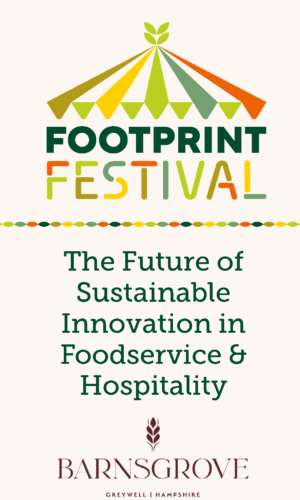The hospitality and foodservice (HaFS) sector has much to be proud of: an increasingly diverse workforce, exciting product innovation, passionate people, a variety of both healthy and indulgent eating out experiences; and a commitment to reducing its environmental impact in areas such as packaging and greenhouse gas emissions.
In all these areas – and more – we are seeing progress to varying degrees. But there is one piece of the sustainability jigsaw that businesses, and indeed society at large, continue to struggle with: food waste.
Consumers say they want to limit their food waste; indeed it ranks as an issue of greater concern among UK citizens than any other food-related issue, trumping those such as the sugar content of foods and animal welfare, according to the Food Standards Agency (FSA). Yet research from Wrap published earlier this year found that people are wasting more food when eating out of home than they were before the first covid-19 lockdown. Moreover, data from Wrap’s Courtauld Commitment 2030 shows levels of food waste generated by businesses remain stubbornly stable.
The financial case for reducing food waste could hardly be clearer. But the moral case is equally powerful given the environmental impact of food waste and the challenges some people face in accessing food. We are in the midst of a severe cost of living crisis that is putting significant pressure on both household and business finances. What better time for consumers and companies to ramp up their action on food waste than now?
Focusing largely on the downstream supply chain – in kitchens and front-of-house – and based on extensive research and interviews with experts and key industry stakeholders, this report explores the challenges and opportunities that face hospitality and foodservice businesses in dealing with food waste. We cover:
- The scale of food waste within the HaFS sector;
- Why tackling food waste is more important than ever from a commercial, environmental, reputational and regulatory perspective;
- The challenges businesses face in reducing food waste in their direct operations;
- The progress the foodservice sector is making in relation to food waste by focusing on reduction, redistribution and recycling;
- How the sector as a whole can accelerate the pace of change.









